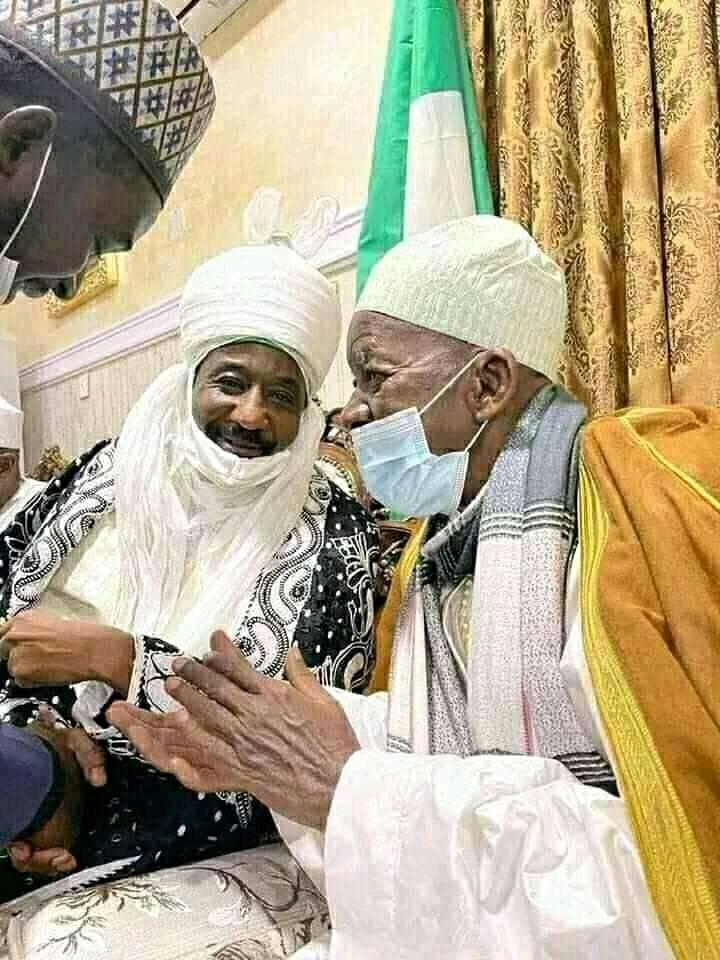
Last week, countless Shaykh Ibrahim Niasse followers, sympathizers, curious, murids… flocked to Sokoto in Nigeria to participate to the annual Maulid celebration for Shaykh Ibrahima Niasse; which is his birthday celebrated in the month of Rajab according to the Islamic calendar (that started on the year of the exile of the Holy Prophet Muhammad from Mecca to Madina Munawwara).
The last edition took place in the city of Kano, Kano State, in 2019. Last year’s was cancelled due to the covid outbreak; and since a few years ago, the Shaykh Ibrahim gathering was taking place usually in Abuja and another Nigerian city (and state) but that habit might change for a one city even probably until the pandemic got under full control. May Allah make it easy. Ameen.

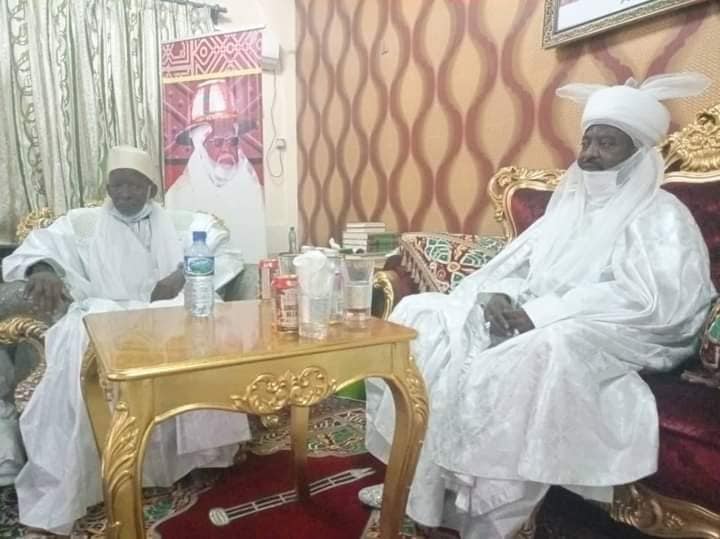





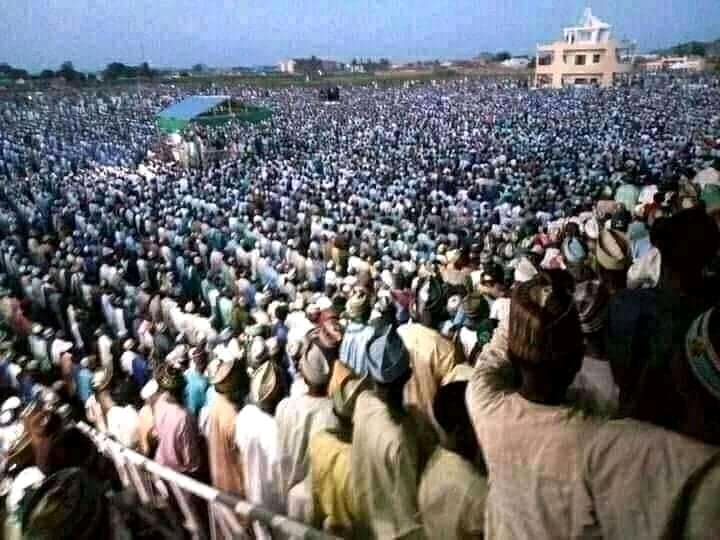
The new Khalif of the Fayda in Nigeria
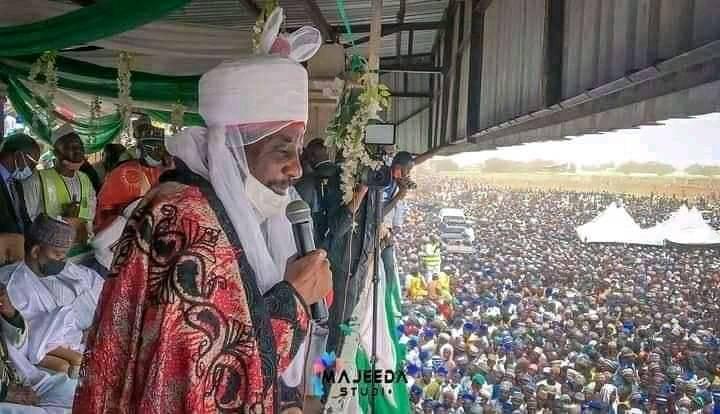
Al Hajj Sanusi Lamido Bayero, the son of late Amir of Kano Al Hajj Ado Bayero has been appointed the Khalifa of the Fayda in Nigeria. In fact History had been repeating itself here because there was Amir Sanusi Bayero of Kano in the 60s who had been dethroned, he was Lamido’s uncle, also he was appointed Khalifa of the Fayda in Kano. So, here is, after few decades another dethroned Amir Sanusi Bayero of Kano who is appointed Khalifa of the Fayda. Alhamdulillah.
A Book Reading
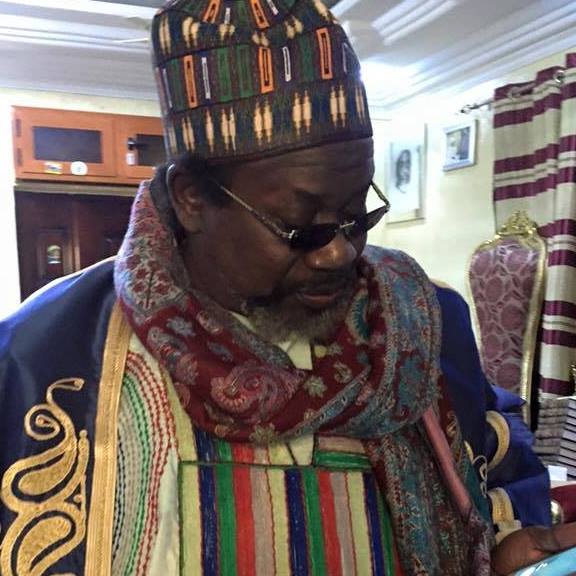
ISLAM, THE RELIGION OF PEACE
The Tolerance and Ease of Islam
The sacred law of Islam in its entirety is blessing,
mercy, justice, and benefit to human beings in their worldly
life and in the Afterlife, for those who accept it, trust in it, and
observe it. The Prophet (PBUH) said, “The most beloved of
religions to Allah is the one which is true (hanîf) and tolerant 17
(samha).” Thus, did Allah, glorious and exalted is He, send
him with truth and tolerance to liberate humanity from its
burdens and shackles, as was the state of the nations before
us whenever punishment befell them. The Most High said,
“He (the Messenger) releases them from their heavy burden
and the shackles that were on them.” Qur’ân 7:157. Indeed,
Allah has lightened the constriction (haraj) upon this
community in terms of what He commanded and prohibited
us. “He has not made the religion constricted for you.”
Qur’ân 22:78. In this way, our Lord informs us that He desires
ease for us in what He has legislated for us, “Allah desires
ease for you, not hardship.” Qur’ân 2:185. If a Muslim truly
reflects on this sacred law, he will see the tolerance and ease
readily apparent in the commands and prohibitions. “The
word of your Lord has been perfected in truth and justice.
None can change His words. And He is the All-Hearing, the
All-Knowing.” Qur’ân 6:115.
Let us look at the basic foundation of this religion:
The Oneness (tawhîd) of the Lord of the worlds, and the
sincerity in religion owed to Him. When the Muslims were
severely tried in Mecca, when the weak and those without
protectors were tormented, when they were persecuted and
insulted, Allah said to them, “(The punishment is upon) The
one who apostatizes after having accepted the faith, except
under compulsion with his heart remaining firmly in the
faith.” Qur’ân 16:106. So, it was permitted for them to
pronounce the words of infidelity as a means of delivering
themselves from the torment, oppression and enmity of the
idolaters.
Let us also look at the legal obligations (farâ’id) of
Islam. Allah made ritual purity (tahâra) a condition for 18
performing the prayer, as in the Prophetic narration: “Allah
does not accept the prayer without ritual purification.” So it is
a condition for performing the prayer. But when the Muslim
is in the absence of water, or when he is excused from using
water (for purification) due to sickness, open wounds, or the
like, he is permitted the dispensation of attaining ritual purity
with clean earth [tayammum which is the ritual purification
performed with clean earth (sand, stone etc)]. As Allah said,
“If you find not water, then cleanse yourselves with clean
soil.” Qur’ân 4:43. And in the Prophet’s words, “The earth
was made a place of prayer for me, and a source of purity.”
Allah made obligatory in the ritual prayer-which is the
second pillar of Islam- standing, bowing, prostrating, and
facing the direction of the Sacred House in Mecca. But these
elements and conditions are lifted from the one who is
unable to perform them. The Prophet said, “Pray standing, or
sitting down if you are unable to stand, or laying down on
your side if you are unable to sit.” So, the Muslim prays
according to his capacity. Allah says, “If you are in fear, pray
on foot or while riding.” Qur’ân 2:239. And this is the case for
the one facing Mecca or the one not facing it, if the latter
should have a valid reason for that.
It is certainly an aspect of Islam’s ease and tolerance
that, should a Muslim intend to do good, but be unable to do
it, Allah rewards him according to his intention. The Prophet
said, “If a servant is sick or on a journey, Allah writes for him
what he would have done if he was healthy or present.”
If we were to recount all the instances of Islam’s ease
and tolerance in the realm of ritual worship, the discussion
would become long indeed. But these representative statements,
little as they are, should suffice by way of indication and proof.
…to be continued in sha Allah.
You can participate publishing this newsletter by supporting it financially; one way is to cashapp: $Bachirzak
Thank you for your support. Please also visit the Nasrul Ilm world page on Facebook, to like and recommend it. Thanks.